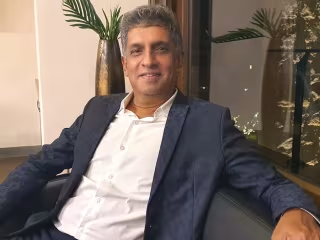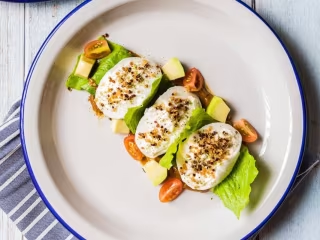Malgudi Mylari Mane shines the torch on local food

(L-R) Anil Kumar, Steven Thirmalai and Leela Prabha, co-founders of Better Food Company that owns Malgudi Mylari Mane.
Founded by three friends, Malgudi Mylari Mane (or MMM) is a passion project that opened its doors to Bengalureans in January 2020, three months before the Pandemic-induced lockdown was declared that pretty much brought everything, including the food and beverage industry, to a standstill.
But with this 36-seater eatery on the highway in Nelmangala, it was just the beginning for its co-founders Anil Kumar, Steven Thirumalai and Leela Prabhu.
“The restaurant came to life because of our common love for food. Having said that, neither of us had any prior experience in the business. We really just loved eating. However, there came a time when we wanted to do something more than being consumers. We wanted to contribute to the culinary map of the State, and that’s how Malgudi Mylari Mane was born,” says Kumar.
“At first, we wanted to start with just the Mylari dosa. Typically, it’s served with sagu and chutney. But then we thought, Karnataka has so many different kinds of naati (rustic/country-style) meat curries, why not do a range of those and serve it with the dosa,” Kumar goes on to add, explaining that with Bengaluru’s demographic being as versatile as it is, they had to do something different with their menu.
“We also wanted to bring back the charm of hyperlocal dishes that are found in the State. When you go to the rural areas or even the tier-2 and 3 cities, you get to taste the real flavours of Karnataka. The same meat curries that you find in the city are so different there. As it is, the local food has lost its identity to a large extent; we just wanted to bring that back. If you go to other States such as Maharashtra, Gujarat – there’s local food all over the place. But here, coastal food takes away 90 percent of the limelight. But there’s so much more to do and explore,” Kumar says.
MMM has sourced recipes from the Cauvery basin area, covering Mysuru, Channapatna, Ramnagara, Maddur, Haasan for the dosa and the meat curries; districts such as Shimoga for the pulavs, and and all the way up to north Karnataka for their akki rottis (rotis made from rice flour) and jolada rottis (the unleavened bread made of sorghum) from Chitradurga up to Bidar, to give an example.
It wasn’t only the romance of the concept though. The trio knew that their pockets weren’t as deep as some of the bigger restaurant chains in the city – in the same category – and they didn’t come with a legacy. “Some of the bigger brands are funded and have access to a lot of resources, which we didn't have, not to mention the high competition in the city. Plus, we were on a budget, so our best bet was going to the highway and using it as a learning experience,” says Thirumalai.
Their first outlet in Nelamangala, on the Bengaluru-Mangaluru highway, therefore is a no-frills set up where the only focus is on good ingredients and good food. “We would have probably invested about INR 50-60 lakh between the three of us,” adds Thirumalai. The location worked for them, even through Covid. They kept their operational and overhead costs low, and just focused on delivering good quality food.
Now it may have been an experiment but MMM began to do well, albeit slowly. When the lockdown was slowly being lifted, people began to drive to the outskirts to just get a taste of the outside and ended up at their restaurant, but even before that, during the lockdown, the three of them would take orders on the phone and drive all the way to the city themselves to deliver. “But that worked, despite the whole issue with logistics. People began to visit us after the lockdown and most of our customers would tell us to open something in the city,” Kumar says.
Therefore in 2022, around April-May, the three went back to the drawing board, figuring out their next step. “For us, moving to the city was less about location and more about ensuring we can replicate the same menu, the same flavour. So, while we conceptualised the new space, looking for the right location, eventually zeroing in on Koramangala, we also began rigorous training of our kitchen staff. It took us almost a year to get things in place. What we were very aware of was the fact that if we had established some sort of presence on the highway, we needed to carry the exact experience to the city. The 50-seater Koramangala restaurant's set-up cost us almost twice as much as what we had invested in our Nelamangala outlet, but we could not compromise on the kitchen – be it with our staff or the equipment,” Thirumalai explains.
The F&B industry in India is a massive challenge, both Kumar and Thirumalai admit, and talent is the biggest of them all. “What is unfortunate is that the hospitality industry is not recognised as an organised sector and the government really needs to take notice of that face, especially since we have a massive population that works in the industry. And there’s a lot of demand, but almost no organisation. People just come and go,” Kumar says.
The three do have expansion plans in mind but are being extremely calibrated about anything new. “If we do expand, which we will, we won’t be giving it out as a franchise. We want to be in control of our menu and our processes so that there is a set standard. And we will be cautious. But yes, we definitely will look at expanding further into the city,” say the co-founders.
Like this project
Posted Nov 7, 2023
Mylari: Founded by three friends, this naati food restaurant in Koramangala began its journey on the Nelamangala highway with the pure purpose of giving the lo…
Likes
0
Views
22
Tags




